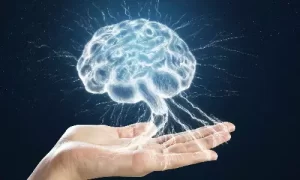
 The innovative Indian company stresses on molecular testing for more accurate diagnosis of cancers, prediction of overall patient survival, better choice of therapy and therapeutic response to improve outcomes.
The innovative Indian company stresses on molecular testing for more accurate diagnosis of cancers, prediction of overall patient survival, better choice of therapy and therapeutic response to improve outcomes.
Leading Indian clinical laboratory CORE Diagnostics has presented exciting new findings in the field of radiotherapy for treating cancer at the ‘Sixth Annual Conference of Young Radiation Oncologists of India’ organised in the national capital Delhi recently.
Attended by around 300 leading oncologists from 16 organisations, the scientific convention saw Dr. Kunal Sharma from CORE Diagnostics presenting findings that “addressed the latest outlook towards cancers, in particular CNS tumours, where molecular testing is the new benchmark to classify, predict outcome and assess treatment response”.
“Tumours were conventionally classified by histology, which is the microscopic study of cancer cells and their interactions with the surrounding tissue. It was found that the classifications were not exactly predictive and prognostic especially in brain tumours and the tumours could be better grouped on the basis of their molecular profiles. This changes the way tumours are treated, and hence, despite them appearing as a certain kind, their classification, behaviour and response to treatment, would depend on their molecular characteristics,” Dr Sharma said.
This approach will result into more accurate diagnosis of cancers, predicting overall survival, choice of therapy and therapeutic response.
Core Diagnostics is currently evaluating to integrate genomics with treatment, which has gained recent attention in a Western study.
“We should put the focus on genomic-adjusted radiation dose (GARD) which is yet to be included in clinical practice. This score practically divides patients into different groups based on their genetic profile and helps to predict their treatment outcome based on the group they fall in. Latest findings reveal that a higher radiation dose does not necessarily have better therapeutic effect on different kinds of tumors and also on the same kind of tumor in different patients,” Dr Sharma added.
As there are various genes predicting the radio-sensitivity of a particular tumour in a particular patient, personalises treatment is the need of the hour. The most important takeaway is that molecular tests are to be taken as the next step to conventional diagnosis and not a replacement to it.
At the convention, Dr Sharma pushed for hierarchy of testing, highlighted the need to explore the reasons for performing and not performing a molecular test, and called for combining the surgical pathology report with the molecular report wherever feasible, to have a complete, integrated diagnosis at one place.
With India recording one of the highest numbers of cancer cases, sharing such findings gives better visibility of how India is planning to cope with the increasing incidence of various types of cancers.
“We are invested in bridging gap between Indian diagnostic industry and the world. Of many other fields, we have focused on molecular diagnostics heavily to find a better therapy to treat cancer. The environment of research in India is just warming up, and our regular efforts are directed towards bringing the world to India. These findings would be of significant effect in treating brain cancer, breast cancer, lung cancer, and pancreatic cancer”, said Zoya Brar, Founder & MD, CORE Diagnostics.
There are presently an estimated 1.4 crore reported cancer cases in India. The disease is the second largest cause for mortality, killing over 8.8 lakh people in the country annually.








